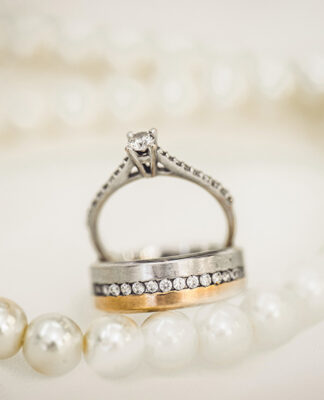Millions of people suffer from chronic migraines or headaches. Migraines and headaches will feel different for every person who experiences them. Generally migraines are characterized by a severe throbbing in the head or behind the eyes. These intense painful sensations can be accompanied by other body aches and even visual auras. Someone dealing with a migraine may even have problems with light and touch sensitivity. A migraine lasts anywhere between an hour to days on end.
Less severe than a migraine headache is a tension headache. These headaches impact both sides of your head and are typically accompanied by the feeling of muscle tightness in your neck, jaw, or even your back. Tension headaches may increase in intensity and frequency as your level of stress rises. Most tension headaches only last 30 minutes to a few hours, but it is not uncommon for your tension headache to span multiple days at a time.
What Causes Migraines and Tension Headaches?
Migraines and tension headaches have both physical and biological causes. In terms of tension headaches, most tension headaches are caused by tight muscles in the neck and scalp. Similar to when you move your leg in a funny way and have muscle pain the rest of the day. Except that muscle tweak is actually caused by stress, depression, anxiety and more. These headaches can impact anyone, but generally, there seems to be a strong hereditary connection.
Migraines, on the other hand, are generally caused by chemicals in the brain constricting blood flow. When blood flow is constricted you get these intense sensations. Seeing as most migraines are caused by stress, this sensation can be very hard to shake and instead induce even more stress. Seeking treatment for these intense sensations is important to preventing instances in the future as well as maintaining your physical and mental health in the long run.
Remedies for Headaches and Migraines
When it comes to effective remedies for both tension headaches and migraines, there are a few options easily available to you. The first is taking over-the-counter anti-inflammatories. This includes drugs like acetaminophen, paracetamol, and ibuprofen. These drugs provide some temporary pain relief though they fail to treat the root cause of the pain. A second option is to visit a chiropractor; specifically if you suffer from tension headaches. A chiropractor will be able to determine if your muscle tension is caused purely by muscle tension, or if your neck and spine have anything to do with it. Muscle tension may be caused by pressure from misalignment in your neck and spine. The next option may not seem like a conventional treatment option, probably because it’s not. The third kind of treatment is to seek specialized acupuncture treatment from a registered chiropractor.
How Acupuncture Helps Migraines and Headaches
Acupuncture is one of the most effective and long lasting treatments available for migraines. Acupuncture treats the headaches at the source and offers immediate relief from chronic pain. Her
Ancient medicinal practicee
Acupuncture is an ancient medicinal practice. Treatment involves a series of very thin and small needles being inserted into a patient’s body deep enough to trigger a nervous system response. The depth will depend on the area of the body. For example, facial acupuncture does not require deep needle penetration. The reason the needles work is because stimulating the nervous system will result in increased blood circulation. This can help reduce muscle tension and dilate constricted blood vessels. The needles are left in the body for around 15-30 minutes.
For anyone wondering, inserting acupuncture needles does not hurt. Instead, it feels like a small prick. The prick may help relax your muscles and will work to relieve pain in just seconds.
During treatment, you may feel a slight numbing or tingling sensation around the needle section. This is typically because of small muscle contractions around the site of the needle. If you feel uncomfortable at any point or in immense pain, you should let your doctor know and remove the needles immediately.
Looking for a more intense acupuncture experience? Acupuncture treatments can specialize with light electric current, heat, and massage. The treatment add ons can strengthen the nervous system response and encourage deeper healing. Additional elements may add to different treatment sessions and do not have to uses each and every time you go for acupuncture.
Regular acupuncture
Additionally, acupuncture tends to be an overall stress relieving experience. Regular acupuncture can help maintain a healthy parasympathetic nervous system. Because small needles are insertes into the body, your body will produce the stress relief and pain reducing hormone oxytocin. When it comes to headaches and migraines, oxytocin is more effective than any over-the-counter pain remover and lasts much longer as well.
If you have tried all other options for your tension headache and migraine pain relief, it might be time to give acupuncture a shot. Generally, you should see decreased frequency and duration over a few months of professional treatment.
Finding the right acupuncture clinic doesn’t have to be a challenge. When going through your clinic options, it’s always a great idea to check out what past and present clients have to say. Sort through your reviews and see if other’s experiences align with what you yourself are looking to get out of acupuncture. Additionally, many clinics offer free over the phone consultations, a space for you to ask any questions you may have and get the answers you need. Once you have found a chiropractor to perform your acupuncture, you can begin to build a relationship, which can make your experience easier.
Author’s Bio
Nicole Howe is a content writer at BreezeMaxWeb. When she isn’t writing, you can find her walking half marathons, biking, or watching Raptors basketball!


























